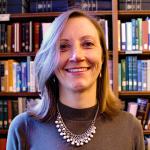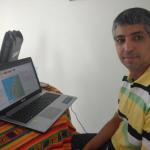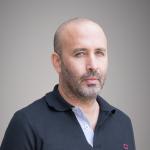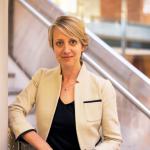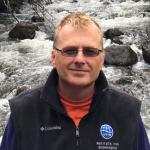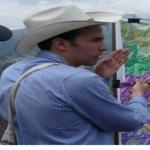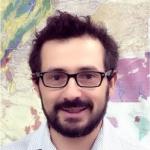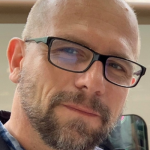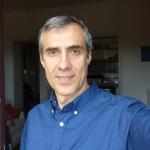People
Seismology
Lara S. Wagner
Lara Wagner is a Staff Scientist at the Carnegie Institution for Science. Her research uses seismic waves to study the internal structure of the Earth in order to learn more about how plate tectonic processes affect the evolution of the continents, especially at convergent margins where one plate descends into the Earth's mantle beneath another. These processes result in the movement water, carbon dioxide, and other materials into the Earth as they get dragged down by the sinking plate, only to be released, at least in part, back to the Earth's surface through volcanic and other processes. As these fluids cycle through Earth's interior, they dramatically change the structure of the plates and the chemistry of the rocks through which they pass. Seismology is uniquely capable of imaging these changes in three dimensions to give us a full picture of the Earth's deep interior and the processes to which it is subjected. Dr. Wagner's research has included field work internationally in Chile, Argentina, Peru, and now Colombia, and in the U.S. in Oregon, Nevada, Idaho, Georgia, North Carolina, and Delaware. For this project, Dr. Wagner will be working with Gaspar Monsalve and his students to deploy a network of seismometers above both the flat and normally dipping slabs in central Colombia.
Gaspar Monsalve
Gaspar Monsalve is an Associate Professor at the Department of Geoscience and Environment at the National University of Colombia, Medellin campus. He is mainly interested in geophysical techniques to elucidate the tectonic configuration of the Northern Andean region. Dr. Monsalve holds a PhD degree in Geophysics from the University of Colorado at Boulder. For this project, he will be taking part in the seismological deployment and the processing and interpretation of body wave data, aiming to constrain Moho depths, and characterize lithospheric heterogeneity and slab fate.
Geochemistry/Geochronology
Agustin Cardona
Agustín Cardona is geologist and associate professor at the National University of Colombia in Medellín. His research is related to regional tectonics, specially the understanding of the tectonic processes that shape the Meso-Cenozoic history of Northern Andes and the Caribbean. For that purpose he integrates geochemical and geochronological data from igneous rocks together with provenance analysis of sedimentary rocks to trace long term plate tectonic modifications. For this project, he will be collaborating Christy Till and students to explore the spatio-temporal and compositional evolution of the Colombian volcanic arc and its relationship to the evolution of the Nazca plate subduction history.
Christy Till
Christy Till is a geologist and Assistant Professor in the School of Earth and Space Exploration who runs the EPIC lab at Arizona State University. Her research integrates a variety of petrologic, geochemical, and geochronologic techniques to examine the mechanisms and timescales of magma genesis. For this project, she will be collaborating with Agustin Cardona and students from Colombia and the US to examine the spatial and chemical evolution of the volcanic arc in Colombia through time and it relationship to lithosphere evolution.
Structure/Tectonics/Basin Analysis/Thermochronology
Brian Horton
Brian Horton is a professor in the Department of Geological Sciences and Institute for Geophysics at the University of Texas at Austin. His research addresses sedimentary basin development and mountain building processes. He utilizes methods in sedimentology, stratigraphy, and geochronology to understand modern and ancient sedimentation, river drainage patterns, sediment provenance, and orogenesis. Much of his research has focused on the geologic evolution of the Andes and associated sedimentary basins and major river systems of South America. For this project, Dr. Horton will be addressing questions related to the history of erosion and sedimentation in relationship to changes in tectonic processes in the Colombian Andes.
Andres Mora
Andrés Mora is the Regional Studies Leader at Ecopetrol Brasil. He got a PhD from the University of Potsdam and his research interests include Structural Geology, Petroleum Geology and Basin Analysis. Between 2008 and 2012 he was the leader of one of the largest Research Projects studying the Andes (Cronología de la Deformación en las Cuencas Subandinas). He has coauthored more than 100 Scientific publications.
Mauricio Parra
Mauricio Parra is an Assistant Professor at the Institute of Energy and Environment, University of Sao Paulo, Brazil. He holds a degree in Geology from the National University of Colombia, a PhD from the University of Potsdam, Germany and was a postdoctoral scholar at the Department of Geological Sciences, Jackson School of Geosciences, at the University of Texas at Austin. His research interests are on surface processes that occur along active orogens and the evolution of their associated sedimentary basins, including the study of their mineral resources. His work includes a strong component of field-based observations and laboratory analysis devoted to track the age and rates of rock subsidence, uplift and exhumation, mainly through the reconstruction of the thermal history of rocks. He has applied these interests to the exploration of hydrocarbons at the Colombian Petroleum Institute (ICP-Ecopetrol). Since 2014 he leads a new research group and laboratory on low-temperature thermochronometry at the IEE-USP.
Geodynamic Modeling
Thorsten Becker
Thorsten Becker is the Shell Distinguished Chair in Geophysics at the Institute for Geophysics and the Department of Geological Sciences, Jackson School of Geosciences, at the University of Texas at Austin. His main research interests are in geodynamics and seismology with a focus on interactions between mantle convection and surface tectonics—studying the inner workings of terrestrial planets and how their mantle and surface systems have co-evolved over time. He combines field, laboratory, and numerical approaches into dynamical models, focusing on the physics of plate tectonics from grain-scale deformation to plate-scale flow. Recent research projects include work on seismic anisotropy, mantle heat transport and the mechanics of plate tectonics, subduction dynamics, and fault system mechanics. He has co-authored more than 120 publications and was named an AGU Fellow in 2015. Dr. Becker holds an M.Sc. in physics from J. W. Goethe University, a Ph.D. in geophysics from Harvard University, and was a postdoctoral scholar at the Scripps Institution of Oceanography at the University of California, San Diego.
Claudio Faccenna
Claudio Faccenna is Full Professor at the Dept. of Science of the University of Roma TRE and Chair of Structural Geology at the Department of Geological Sciences, Jackson School of Geosciences, at the University of Texas at Austin. Trained as a structural geologist, he focused his research on tectonics and geodynamics, studying subduction, mountain building, and more in general, the connection between mantle convection, and surface deformation. He is presently working on mechanism of mountain building and dynamic topography, merging geological and geophysical data with modelling. Author of more than 200 papers, he is serving as editor of G-Cubed.
Outreach/Teacher Training Initiative
Marlena Jones
Marlena Jones is the Acting Director of the Carnegie Academy for Science Education (CASE) of Carnegie Institution of Washington. She oversees the administration, programs and strategic plan of this long-running science education organization. CASE increases science education through hands-on student and teacher programs in the nation's capital. As an inaugural member of LEAD STEM of the STEM Learning Ecosystems, Ms. Jones instituted new programs to enhance the participation of young ladies in science and STEM. As the Director of the DC STEM Network, Ms. Jones coordinated multiple efforts in Washington DC as well as nationally to increase STEM excitement and participation by underrepresented and disadvantaged youth. Ms. Jones was the Director of both of the DC STEM Fairs (Secondary and Elementary) -- increasing participation and recognition of students in both. She developed and instituted the Network's STEM Ambassadors program which promoted K-12 DC public school STEM education by disseminating best STEM practices throughout metropolitan area. Ms. Jones instituted NGSS (Next Generation Science Standards) implementation systems in DC through a series of training sessions for science teachers. Additionally, she developed, designed and implemented a new outreach program, CASE STEM Kits to distribute biotechnology experiments, equipment and supplies to Washington DC secondary school science teachers. Prior to joining CASE, Ms. Jones was the Director of the Discovery Center for Cell and Molecular Biology at Catholic University and was instrumental in training over 20,000 undergraduate, graduate, and secondary school students and teachers in current research techniques. She received a Master of Science degree in Cell and Molecular Biology from Catholic University, and obtained two Bachelor of science degrees -- one in biochemistry and a another general biology from the University of Maryland College Park. Ms. Jones is both Phi Beta Kappa and Omicron Delta Kappa member.

